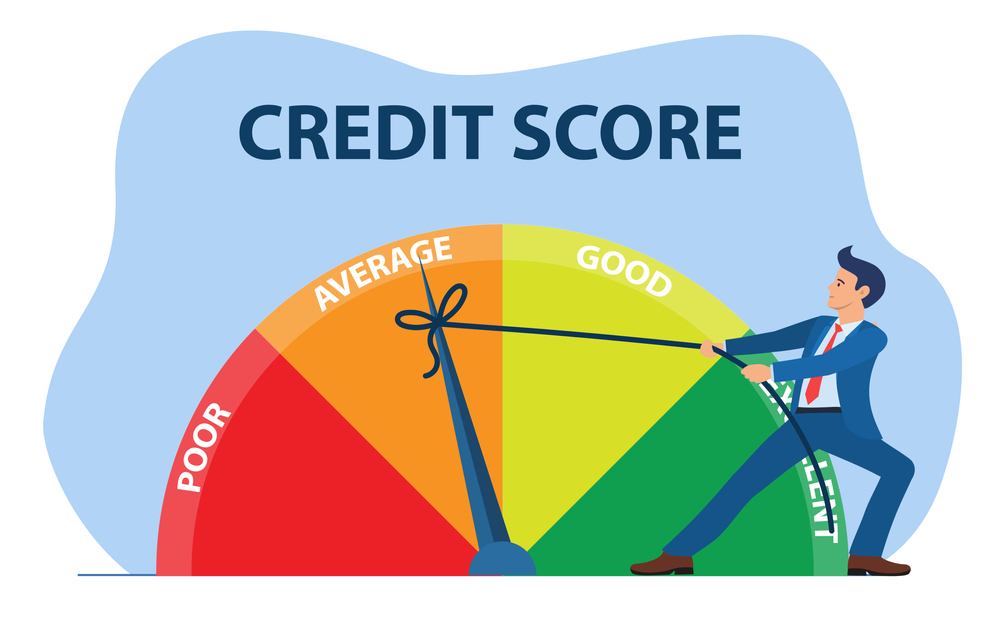Credit Score: The 5 Important Factors that Affect It
A credit score is numerical value lenders use to assess a certain borrower’s risk.
Credit card agencies, auto dealers, and bank loan officers are three lenders who will look at your credit score before choosing how much and what interest rate they are ready to offer you. Before providing an insurance policy or renting out an apartment, insurance firms and landlords may check your credit score to assess how financially responsible you are.
Your credit score is the most important factor for determining your credit condition. Still, many individuals are unaware that they might have improved their score before it’s too late – when they hear that they didn’t qualify for a loan or are denied other services because of their credit score.
In the United States, over 220 million people have credit files. Around 36 billion pieces of credit data come up each year – an average of 15 modifications to each borrower’s credit file per month. It’s critical to keep your credit edit in good shape. However, not all changes to your credit report impact your credit score.
Table of Contents
5 Important Factors That Affect Credit Score
Here are the five most important factors that affect your credit score and what it implies when applying for a loan.
1. Bill Payment History
Your payment history accounts for 35% of your credit score. Paying your payments on time has a greater impact on your credit score than any other factor.
It is one of the most highly evaluated criteria in determining your credit score since it demonstrates to lenders that you’ve been consistent in making on-time payments – a sign that you’ll be able to repay your loans in the future. As a result, even one or two delinquencies can drastically lower your credit score.
One of the important and effective things one can do for their credit score is to pay their dues on time. Establishing online notifications or automated bill payments across your banks can help you stay on top of your bills and eliminate the possibility of missing a payment accidentally. It’s also far more difficult to improve a credit score once it gets low due to late payments, so try to maintain those payments on time.

2. Amount of Debt
You’ve made your payments on time, right? But what if you’re still on the verge of credit default?
After payment history, the debt you owe comes in second, accounting for 30% of your FICO score. This component, also known as credit utilization or credit usage, refers to how much of your account balance limit you are currently utilizing.
The amount of your overall credit card limit that you are utilizing is measured by your debt-to-limit ratio. Aiming to keep your debt below 30% is a worthy goal, but the lesser, the better. A high credit utilization rate tells lenders you’re overstretched and won’t be able to take on further debt.
3. Length of Credit History
The length of time you have used credit is also a factor to consider in your credit score. Long credit history is preferable (if free of late payments and other bad elements), but a short history is acceptable as long as you’ve made on-time payments and don’t owe excessive amounts.
Length of your credit history accounts for 15% of your credit score. It considers the age of your oldest account and the average age of all your accounts. Having an “older” credit age is beneficial to your credit score since it demonstrates that you have a lot of credit history. You may reduce your average credit age by opening new accounts or canceling old ones. As a result, opening many new accounts at once is usually not a smart idea. Keep your accounts open for as long as possible to ensure that your oldest account continues to improve your credit score.

4. Credit Inquiries
Every time somebody checks your credit report, an inquiry is recorded on your credit report, whether it’s a lender, landlord, or insurance company. Although a single hard inquiry is unlikely to lower your credit score by more than a few points, it can remain on your credit record for up to two years. Many hard inquiries or creating multiple new lines of credit in a short time, on the other hand, might be more damaging. Because credit inquiries account for 10% of your credit score, it’s critical to limit how often you apply for credit. Each new hard inquiry might deduct a few points from your total.
Hard withdrawals might result in a drop in your credit score. Why? If you’ve created multiple accounts and the percentage of these accounts is large compared to the overall number of accounts, the score suggests you’re a higher risk. People do this when they have cash flow issues or intend to take on a lot of additional debt.
The best part is that your credit score is affected solely by queries made within the past 12 months. After 24 months, inquiries are removed from your credit record.
5. Types of Credit on your Report
Last but not least, your credit mix determines 10% of your credit score. It simply refers to the several sorts of credit you have, such as school loans, vehicle loans, and credit cards. It also considers the overall number of accounts you have. Because this is such a minor part of your score, don’t be concerned if you don’t have accounts in each of these areas, and don’t establish additional accounts only to diversify your credit mix.
The two most common credit accounts are revolving accounts and installment loans. It’s better for your credit score if you have both sorts of accounts on your credit report since it shows you’ve dealt with multiple types of credit.
It’s even better if you have loans for other assets, such as a vehicle or a house, maybe a student or personal loan, in addition to credit cards. However, because these kinds of credit account for just 10% of your credit score, missing out on a particular form of credit, such as an installment loan, will not have a significant impact on your overall score.
While your credit score is crucial for mortgage approval for loans and receiving the greatest lending rates, you don’t have to be obsessed with the scoring criteria to have the sort of score that bankers want to see. In general, if you correctly handle your credit, your score will improve.
Reading your credit report for the first time might be overwhelming. However, understanding what makes up your credit report and how each item impacts your credit score can help you prioritize the measures that will most affect your credit status. When asking for a loan or line of credit, your credit score can significantly impact whether or not you are accepted. So, taking care of the five factors mentioned above that affect your credit score can help you maintain a good credit score and get the desired loans.






